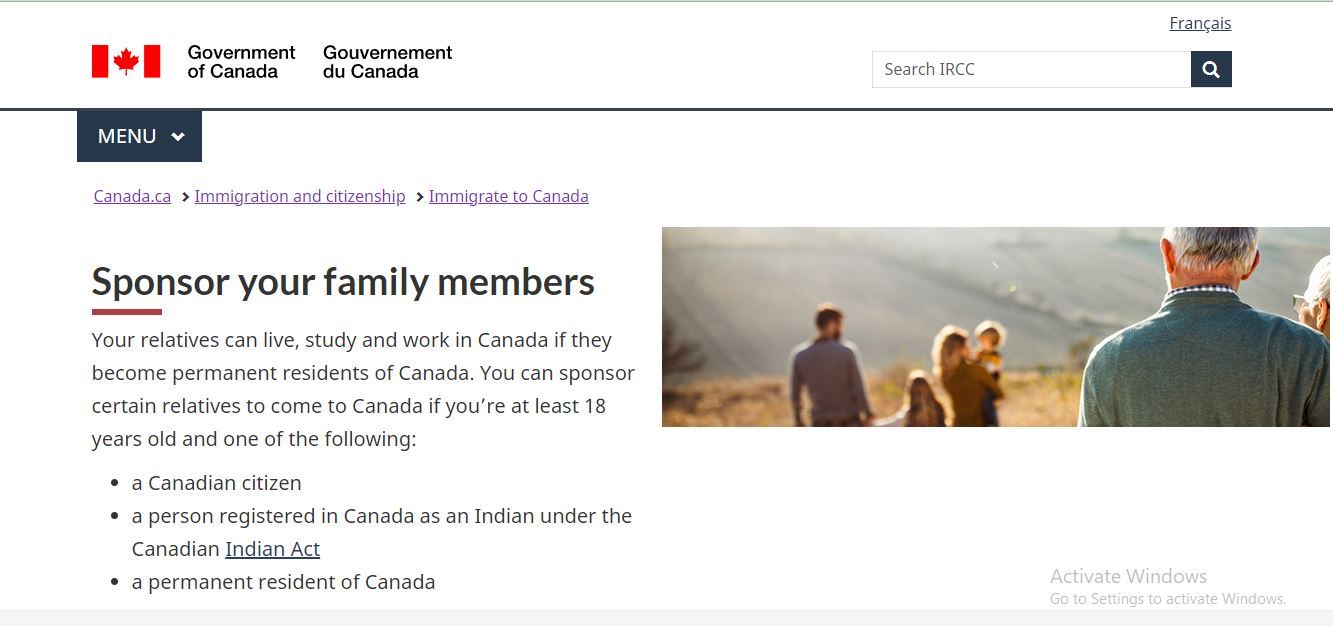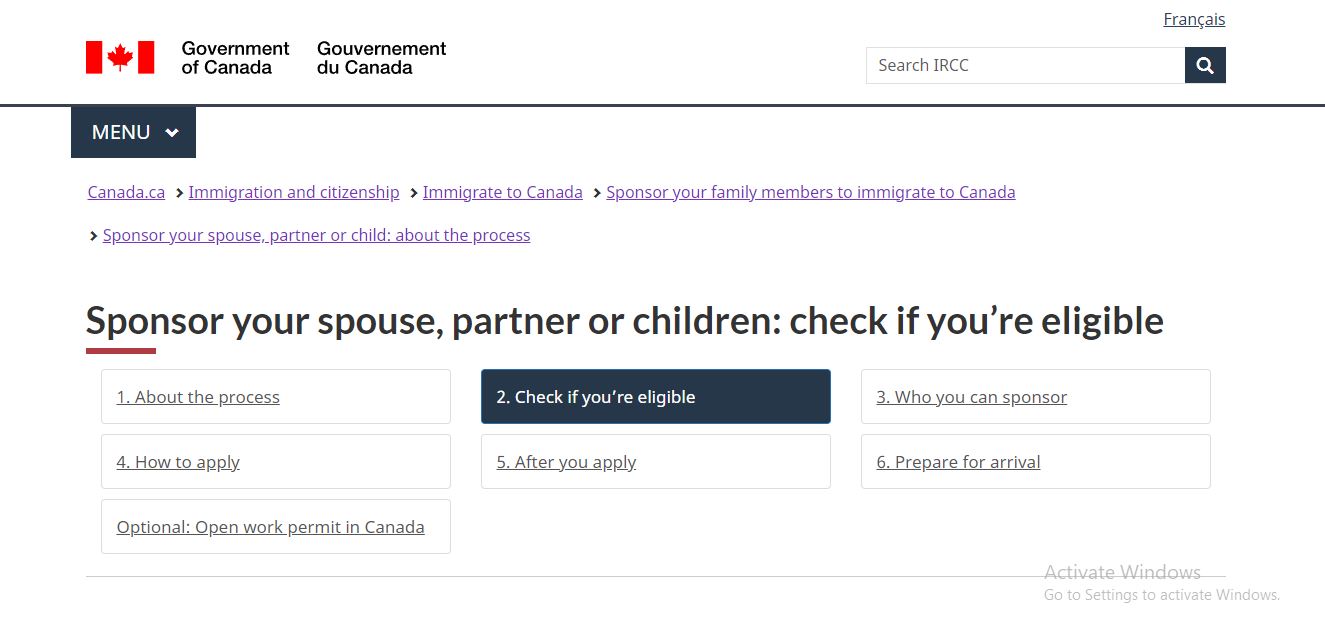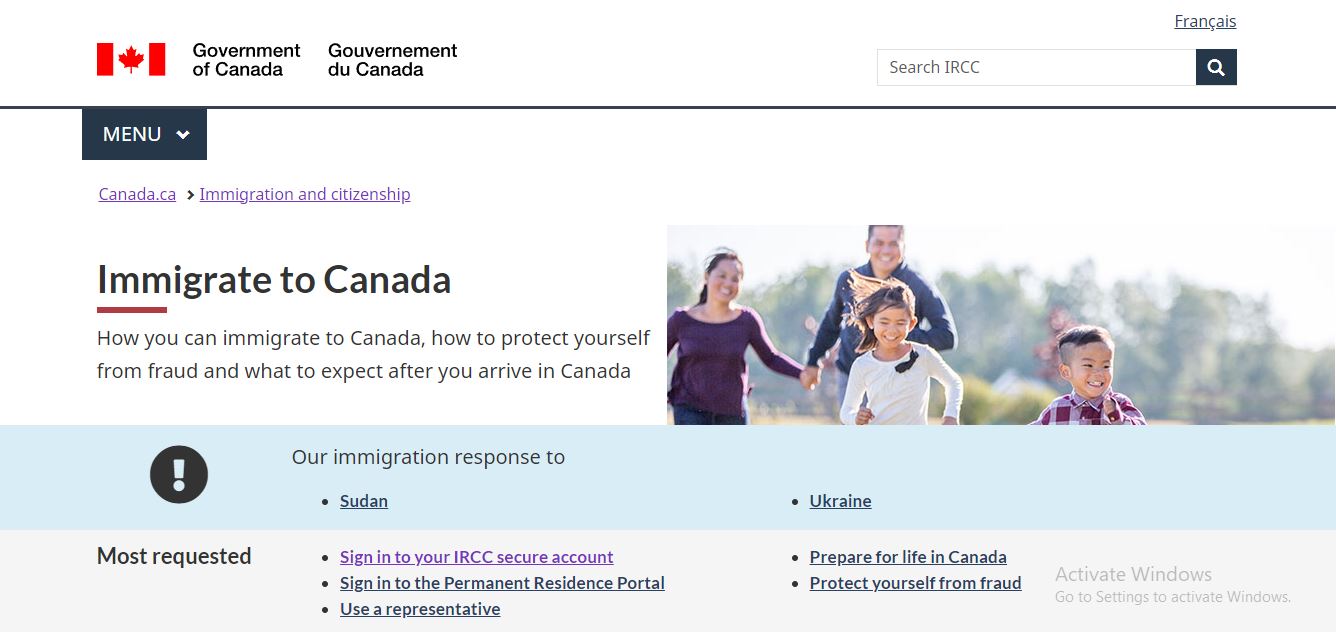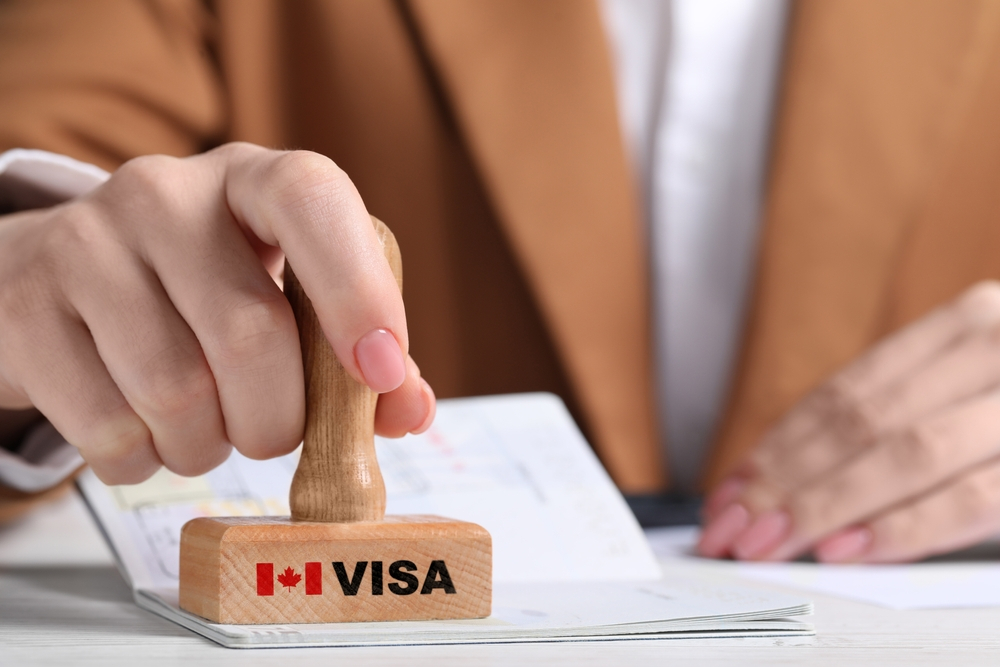Canada Family Reunion Visa: Fastest Way to Bring Your Loved Ones Home in 2026
Have you ever found yourself missing your loved ones miles away? You’re not alone. Family, after all, is where the heart finds its true home. Canada’s got an amazing solution: the Canada Family Reunion Visa.
The Canada Family Reunion Visa isn’t just for anyone. No, it’s reserved for those special people who have family ties in Canada. Whether you’re yearning to hug your granny, catch up with your cousin, or high-five your uncle, this visa might be your ticket to family bliss.
To sponsor a family member, you need to meet certain criteria and take on some responsibilities. It’s like saying, “Hey, Canada, I vouch for this awesome person, and I promise to make sure they’re all good once they’re here.” It’s a noble deed that comes with a sense of duty and a whole lot of love.
Qualifying Relationships
Let’s discuss who’s eligible to join the family reunion train with you through the Canada Family Reunion Visa. We’re not just talking about your typical family tree branches here. Canada has some specific guidelines on who qualifies as a family for sponsorship.
 Spouse or Common-law Partner
Spouse or Common-law Partner
Whether you’ve walked down the aisle or decided to skip the formalities and jump straight into living together, Canada’s got your back. They recognize that love knows no bounds, and that’s beautiful.
Requirements for Sponsoring a Spouse
First, you must ensure your relationship checks all the right boxes. Canada’s not going to let just anyone get in claiming they’re married to a Canadian, right? So, you’ll need to prove that your marriage or common-law partnership is legit. This means providing documents like marriage certificates, joint bank accounts, and mushy love letters (okay, maybe not the last one).
ALSO READ: Your Ultimate Guide to Canada Express Entry for Investors (2024).
Application Process and Timeline
Get ready for some form-filling fun! You’ll need to submit your application online or by mail, along with all the required documents. Once that’s done, it’s time to play the waiting game. Processing times can vary, but you can expect to hear back within a few months.
Common Challenges and How to Overcome Them
Life wouldn’t be much fun without a few hurdles, would it? When it comes to Spousal Sponsorship, there are a couple of common challenges you might encounter:
Incomplete Documentation
Make sure you tick all the necessary paperwork boxes. Missing documents could delay your application or even lead to a rejection. Double-check everything before you hit submit!
Financial Requirements
Proving that you can financially support your spouse is a key part of the application process. If you’re feeling a bit confused about meeting the financial requirements, don’t sweat it. You can show alternative sources of income or assets to ensure you’re clear.
Dependent Children
These are the mini versions of you and your partner who bring endless joy and chaos into your lives. From toddlers to teens, if they rely on you for support and care, they’re eligible to join the reunion festivities in Canada.
Sponsorship Eligibility and Requirements
First, you must make sure you’re eligible to sponsor your dependent children or other relatives. This typically includes proving that you have a genuine relationship with them and that you can financially support them once they’re in Canada. No one wants to see their loved ones struggling to make ends meet, right?
Application Process
Get prepared because some paperwork will be involved – there’s no way around it. You’ll need to provide detailed information about yourself, your family members, and your financial situation. Once that’s all sorted, you can submit your application and cross your fingers for speedy approval.
Key Considerations
When we talk about sponsoring dependent children and other relatives, there are a few key considerations to keep in mind. For starters, you’ll need to think about things like schooling, healthcare, and settling into Canadian life. It’s not just about bringing them over; it’s about ensuring they have everything they need to thrive in their new home.
Parents and Grandparents
Let’s not forget about the people who brought you into this world—your parents and grandparents. Whether they’re your pillars of wisdom or your favorite baking buddies, Canada recognizes the importance of keeping families connected across generations.
Eligibility Criteria
Before you start dreaming about family dinners and Sunday brunches, you need to meet the eligibility criteria. For Parent and Grandparent Sponsorship, you need to prove that you can financially support your parents or grandparents once they’re in Canada. The government wants to ensure they won’t eat Kraft Dinner every night because they forgot to budget properly.
Application Process and Timeline
Like others, get ready to go into some paperwork – and lots of it. You’ll need to provide detailed information about yourself, your family members, and your financial situation. Once your application is submitted, it’ll be processed by the Canadian immigration authorities, and you can expect to hear back within a few months.
Changes and Updates in Recent Years
Over the years, the parent and grandparent sponsorship program has undergone some changes and updates. For example, the application intake process has been adjusted to manage the influx of applications efficiently. It’s essential to stay up-to-date on these changes to ensure a smooth application process for you and your loved ones.
ALSO READ: Register a Business in Canada as an Immigrant: A Step-by-Step Guide
Extended Family Members
Canada also extends its arms to include other eligible relatives. Think aunts, uncles, nieces, nephews, and cousins. Yes, even your second cousin, twice removed, might have a shot at joining the family reunion in Canada.
There’s some paperwork to tackle before you start packing your bags and booking your tickets. Each relationship has its own documentation requirements to prove your kinship. From marriage certificates to birth records, Canada wants to make sure you’re not just pulling your leg about being family.
Step-by-Step Guide to Applying for a Canada Family Reunion Visa
Let’s shift focus to guide on applying for that Canada Family Reunion Visa. We’ll take you through the process step by step, from gathering your documents to hitting that submit button. Shall we?
 Preparing Documents
Preparing Documents
First, you have to make sure you’ve got all your documents in a row when it comes to paperwork. This isn’t a walk in the park, but with a bit of organization, you’ll be good to go.
Documents Required for Both Sponsor and Applicant
For starters, you’ll need to provide proof of your relationship with the person you’re sponsoring – think marriage certificates, birth certificates, and the like. You’ll also need to prove that you can financially support them once they’re in Canada. This means bank statements, employment letters, and anything else that shows you’ve got the cash to back up your sponsorship.
Tips for Gathering Necessary Documentation
By non, I’m confident you know what you need. But how do you go about getting it all together? Here are a few tips to help you out:
- Start Early: Don’t leave things to the last minute. Give yourself plenty of time to gather all the necessary documents so you won’t be scrambling at the eleventh hour.
- Stay Organized: Create a checklist of all the documents you need and tick them off as you go. This will help ensure you don’t miss anything important.
- Double-Check Everything: Before submitting your application, go through all your documents with a fine-tooth comb. The last thing you want is for your application to be delayed or rejected because of missing or incorrect paperwork.
Completing the Application
You have two options for applying for a Canada Family Reunion Visa: online or paper-based. Let’s break down both options so you can choose the one that works best for you.
Online Application Process
The wonders of the internet – making life just a little bit easier, one click at a time. If you’re tech-savvy and prefer to do things online, this option might be right for you.
To get started, go to the Canadian government’s website and create an account. Then, you’ll fill out the application form, upload your documents, and pay the application fees. That’s easy, right?
Once your application is submitted, you’ll receive a confirmation email with further instructions. From there, you can sit back, relax, and wait for the Canadian immigration authorities to do their thing.
Paper-Based Application Process
If you’re more of a pen-and-paper person, fear not – there’s an option for you, too. The paper-based application process might be old-school, but the result matters, right?
 To begin with, you must download the application package from the Canadian government’s website or request a physical copy by mail. Then, you must fill out the forms, gather your documents, and send everything to the designated address.
To begin with, you must download the application package from the Canadian government’s website or request a physical copy by mail. Then, you must fill out the forms, gather your documents, and send everything to the designated address.
Once your application is received, you’ll receive a confirmation letter. From there, it’s just a waiting game until you hear back about the status of your application.
Processing Times and What to Expect
To get to this stage, you’ve submitted your application. So, what next? Well, get ready to play the waiting game. Processing times can vary depending on a whole bunch of factors, including the volume of applications and the complexity of your case.
Generally speaking, you can expect to hear back within a few months. During this time, the Canadian immigration authorities will review your application, conduct any necessary background checks, and make a decision on whether to approve or deny your visa.
While you’re waiting, try to stay patient (easier said than done, we know). If you haven’t heard anything after a few months, you can check the status of your application online or contact the Canadian immigration authorities for an update.
Biometrics and Medical Examinations
Biometrics and medical examinations are like two more stops on our journey to the Canada Family Reunion Visa. Think of it as getting your passport stamped and a quick check-up before boarding the family reunion express.
Requirements for Biometric Data Collection and Medical Examinations
What exactly are biometrics, you ask? Well, it’s like your digital fingerprint—a unique way for Canada to verify your identity. When you submit your visa application, you’ll also need to provide biometric data, including fingerprints and a photo.
Now, onto the medical examinations. Canada wants to make sure you’re healthy and ready to experience the country. Depending on where you’re applying from and your individual circumstances, you may need to undergo a medical examination to prove your admissibility to Canada. It’s like getting a clean bill of health before embarking on an exciting journey.
ALSO READ: A Comprehensive Guide to Canada Tourist Visa: Everything You Need to Know
How to Schedule and Prepare for Biometrics and Medical Tests
Scheduling your biometrics appointment comes instant. Once you’ve submitted your visa application, you’ll receive instructions on how to book your appointment at a designated visa application center. It’s like making a reservation at your favorite restaurant with more paperwork.
You’ll need to visit an approved panel physician for the medical examinations for your assessment. Don’t worry—they’re specially trained to conduct immigration medical exams. Be sure to bring along any required documents and be prepared to answer some questions about your medical history. It’s like a regular check-up but with a focus on ensuring you meet Canada’s health standards.
Understanding the Importance of Medical Admissibility
Canada wants to ensure you don’t bring any contagious diseases or health conditions that could risk public health and safety. It’s like ensuring everyone on board the family reunion train is fit and healthy for the journey ahead.
Interview Process (if applicable)
Not everyone will need to go through an interview, but for some visa applications, it’s a crucial step in the process.
Overview of the Interview Process
So, what’s the deal with the interview? Think of it as a chance to sit down and chat with the officers at the Canadian consulate or embassy. They want to get to know you better and ensure you’re the real deal—a genuine candidate for the family reunion visa.
During the interview, you might be asked questions about your relationship with your sponsor, your plans for your time in Canada, and how you intend to support yourself during your stay. It’s like having a friendly chat with a neighbor over a cup of coffee but with a more official treat.
Tips for Preparing for the Interview
Firstly, you have to relax! You heard that right. Take a deep breath and remember that the people conducting the interview are just regular people like you and me. They’re not out to trip you up or make things difficult.
Next, brush up on your knowledge of your sponsor and your relationship with them. Be prepared to answer questions about how you met, how often you communicate, and your plans for your time together in Canada. It’s like revisiting the highlights of your relationship—just be honest and genuine, and you’ll do great.
And finally, practice, practice, practice! Enlist a friend or family member to run through some mock interview questions with you. The more you practice, the more confident you’ll feel on the big day.
Common Questions Asked
You might be wondering what kinds of questions you can expect during the interview. Well, they can vary depending on your individual circumstances, but here are a few common ones to get you started:
- Can you tell us about your relationship with your sponsor?
- What are your plans for your time in Canada?
- How do you intend to support yourself during your stay?
- Have you visited Canada before?
Just remember to stay calm, be honest, and answer each question to the best of your ability. You’ve got this!
Decision and Next Steps
Let’s talk about what happens next and how to explore the twists and turns of the decision-making process.
What to Expect After Submitting the Application
What next after you’ve hit the “submit” button on your visa application?
First, you’ll receive an acknowledgment of receipt from the visa office confirming that they’ve received your application. It’s like getting a virtual high-five, letting you know your documents have safely made it into the right hands.
 But that’s just the beginning. From there, it’s all about waiting patiently for updates to be processed. It’s like watching the clock tick down to your favorite TV show premiere—exciting and full of anticipation. Rest assured, though, that the officers at the visa office are working diligently to review your application and make a decision.
But that’s just the beginning. From there, it’s all about waiting patiently for updates to be processed. It’s like watching the clock tick down to your favorite TV show premiere—exciting and full of anticipation. Rest assured, though, that the officers at the visa office are working diligently to review your application and make a decision.
Receiving a Decision
This is the moment of truth—receiving a decision on your visa application. It’s like opening a present on Christmas morning, but instead of a shiny new toy, you’re hoping for approval to reunite with your loved ones in Canada.
If your application is approved, congratulations! You’ll receive notification of your visa approval and instructions on what to do next.
But what if your application is refused or you’re asked for additional information? Don’t panic! It’s not the end of the road. You’ve got options. You can appeal the decision, provide more evidence to support your case or explore other avenues for reunification.
Additional Resources
Before we wrap things up, let’s talk about some additional resources that can help you on your journey to reuniting with your loved ones in Canada. Here are a few helpful links to get you started:
Government of Canada Immigration Website
This is your one-stop shop for all things immigration-related. You’ll find everything you need to know here, from visa application forms to eligibility criteria.
ALSO READ: 10 Remote Job Opportunities for Immigrants in Canada
Visa Application Centers
These centers are where you’ll submit your visa application and biometric data. Be sure to check their website for location information and appointment scheduling.
Panel Physicians
If you need to undergo a medical examination as part of your visa application, you’ll need to visit an approved panel physician. You can find a list of approved physicians on the Government of Canada website.
Legal Assistance
If you’re facing challenges with your visa application or need legal advice, it’s always a good idea to consult with an immigration lawyer or consultant. They can provide guidance and support throughout the process.
Community Support Groups
Sometimes, the best advice comes from those who’ve been through the process themselves. Consider joining online forums or community support groups to connect with others navigating the Canada Family Reunion Visa process.

I want to travel to Canada
I do not live in Afghanistan